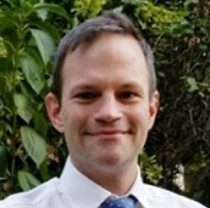Ben Miller
Professor of Writing and Quantitative Theory and Methods at Emory University
www.aiai.network/ben-miller/
Biennial

Friche la Belle de Mai
41 Rue Jobin
Marseille, France 13003
November 7-8, 2024
Exploring the visual arts, the sound arts and live performance, Chroniques, the Biennial of Digital Imaginaries focuses on the presence and use of digital and new technologies in art, invests the public space and gives a voice to national and international artists from different backgrounds. During the Biennial, Villa Albertine and City/Cité continues its dialogue between Atlanta and Marseille on the role of cultural institutions in territorial and urban development with Mark DiNatale (The Goat Farm) participating in a round table on this topic and opens a new field of conversation between the two cities on technological revolutions and AI with Ben Miller, who will speak about AI & Ethics from an Atlanta-based, Civil Rights-focused lens, and lead a workshop intitled « Looking at Cities, Art, and Architecture with and against Generative AI ».
Roundtable Discussion with Ben Miller: Generative AI, The Illusion of Autonomous Creation
Thursday, November 7 | 2-3:30pm | Friche la Belle de Mai
A discussion with Ben Miller, Professor of Writing and Quantitative Theory and Methods at Emory University (Atlanta); Arta Agani, Director of the National Gallery of Kosovo (Kosovo); Marie Point, Director of Dark Euphoria (Marseille); Coline Teboul, Intellectual property and digital arts lawyer / @LEX law firm (France); and moderated by Chrystèle Bazin, journalist (France).
The emergence of generative AI calls for new artistic, technical, economic and political forms of cooperation to deal with this new democratization of the creative gesture. During this round table, Ben Miller will speak about AI & Ethics from an Atlanta-based, Civil Rights-focused lens:
AI Ethics, Hallucinations, and Society from/in Atlanta, cradle of the modern American Civil Rights Movement with Ben Miller
Is it possible to enlist AI ethically, equitably and in the service of justice? What is the role of the humanities in this pursuit? How can there be a role for a technology that so often hallucinates? In 1900, Dr. W.E.B. Du Bois, a premier American sociologist and activist, conducted a comprehensive study of the Black experience in America using data and data visualization. His interdisciplinary, collaborative, expressive approach became a hallmark of digital humanities in the 21st century. Extending this model to AI means developing an approach to data, machine learning, and algorithms sensitive to sociology, anthropology, and alternative modes of inquiry as define the humanities from creative writing to theater to studio arts. This talk is a short exploration of the work of the Atlanta Interdisciplinary AI Network towards those goals, the projects it supports, and the potential for a humane engagement with AI.
Round Table Discussion with Mark DiNatale: « Enjeux liés à la formation et à l’accompagnement des artistes et créateur.rices pour promouvoir le développement territorial »
Thursday, November 7 | 3:30-5pm | Cartonnerie, Friche la Belle de Mai
A discussion between Mark DiNatale, Director of The Goat Farm (Atlanta); Béatrice Simonet, Director of IFAMM (Marseille); Kwena Mokwena, Curator of Afrikan Freedom Station (South Africa); and moderated by Elodie le Breut, Director of A.M.I. (Marseille).
Territorial development, through the training and support of artists and creators, presents specific challenges, particularly in outlying areas far from major economic, social and cultural centers. These challenges concern social innovation, economic attractiveness, artists’ employability and territorial governance. By presenting concrete initiatives from local authorities, higher education and civil society on an international scale, we aim to illustrate these challenges.
Workshop with Ben Miller: Looking at Cities, Art, and Architecture with and against Generative AI
Friday, November 8 | 2-3:30pm | Labobox, Friche la Belle de Mai
Observational writing about cities as practiced by activists like Jane Jacobs and writing about architecture by historians and architects like Beatriz Colomina has taught generations how to reflect and think about the built environment. While tools like thesauruses, dictionaries, auto-correct, and search have become seamless parts of people’s writing practices, Generative AI as a writing assistant offers something less familiar and possibly less safe. In a 90-minute workshop, let’s explore how our observational writing about place, space, and form can be assisted and supported by Generative AI, and where we might want to draw some lines.

Professor of Writing and Quantitative Theory and Methods at Emory University
www.aiai.network/ben-miller/
